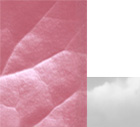|
|
Waste
management in Sri Lankas health sector
|
| |
| |
| |
Commissioned by:
UNIDO - United Nations Industrial Development Organisation, Vienna
|
| |
| |
|
In co-operation:
|
|
National Cleaner Production Centre (NCPC), Colombo,
Sri Lanka
|
| |
| |
|
Duration:
July till October 2005, with a 12-day stay in Colombo
|
| |
| |
| |
| Background |
| The project is based on the experience UNIDO/UNEP have
gained through the first phase of the National Cleaner Production
Centre (NCPC) programme, during which NCPCs were established in 20
countries. The present project definition mission shall define the
specific requirements for the further establishment and organisation
of the NCPC in Sri Lanka. |
| |
|
The NCPC in Colombo has focussed on several topics and sectors,
such as the food production and processing sector, wood industry,
tourism as well as on the health sector but only for a short period
of time. Because of the specific relevance for human health and
the environment a more in-depth assessment of integrated measurements
in the health care sector is envisaged. Such an approach can focus
on: waste handling and disposal, operations management of health
care institutions and Cleaner Production methodologies, involvement
of the service and product suppliers of the health sector. As examples
from other countries show considerable reductions concerning environmental
impacts and costs this could also be the outcome of such an initiative.
|
| |
| |
| Outline and target |
| In order to reach the target of waste reduction and
of lowering the risk of waste handling as well as to access the chances
of an integrated approach, UNIDO has decided to commission 2 experts
from Oekopol with a fact finding mission with a view to outline an
upcoming project. During their stay in Sri Lanka the following questions
shall be discussed with relevant partners: |
| |
- What sort of waste and environmental management is already established
in hospitals in Sri Lanka?
- How is hospital waste treated and are there options to make
the situation more environmentally friendly?
- Are there possibilities to improve the environmentally-orientated
procurement of hospitals?
- Is there a possibility to reduce the costs of hospital waste
treatment (e.g. via recovery and reuse)?
- What are the relevant settings within the framework of existing
legislation?
|
| |
The first part of the mission will be the assessment
of the situation in hospitals and in the waste management sector.
The second part will be the discussion with representatives from the
public and private health care sector (e.g. suppliers of medical products,
purchasing department) on further environmentally-orientated improvement
within the supply chains in the context of international frameworks.
|
| |
| The overall aim of the mission is to identify the needs
of support to technical or managerial developments and if sensible
to outline potential support activities. |
| |
| |
| |
| Contact |
|
|
| Evert Kok, UNIDO |
e.kok@unido.org |
| Sena Peiris, NCPC |
sncpc@mail.ewisi.net |
| Christian
Tebert |
 |






